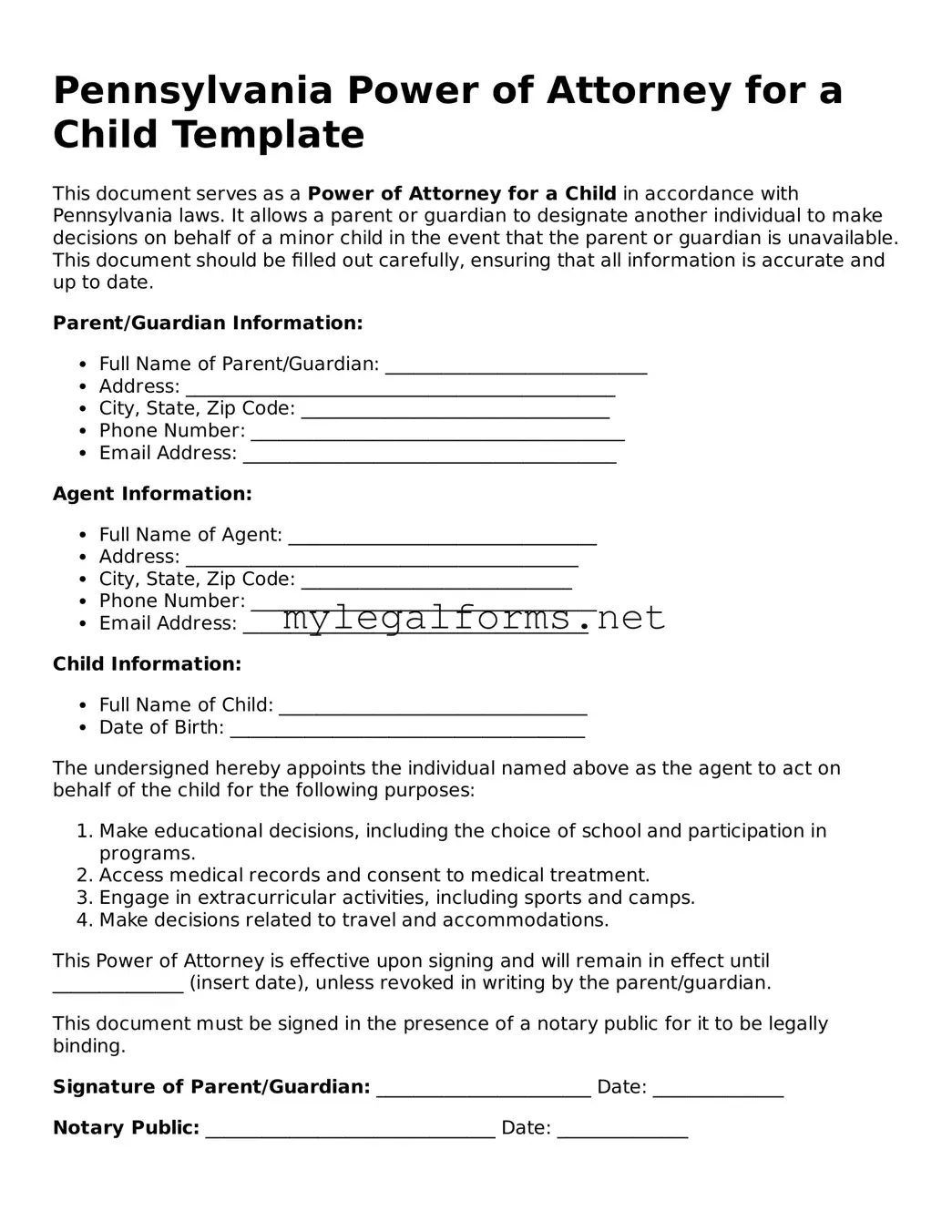Power of Attorney for a Child Document for Pennsylvania State
The Pennsylvania Power of Attorney for a Child form is a legal document that allows a parent or guardian to grant temporary authority to another adult to make decisions on behalf of their child. This form is particularly useful in situations where the parent is unable to care for the child, such as during travel or medical emergencies. Understanding how to properly complete and utilize this form can ensure that a child's needs are met without interruption.
Launch Power of Attorney for a Child Editor

Power of Attorney for a Child Document for Pennsylvania State
Launch Power of Attorney for a Child Editor

Launch Power of Attorney for a Child Editor
or
⇓ PDF Form
Complete the form at your pace — fast
Finish your Power of Attorney for a Child online and download the final version.